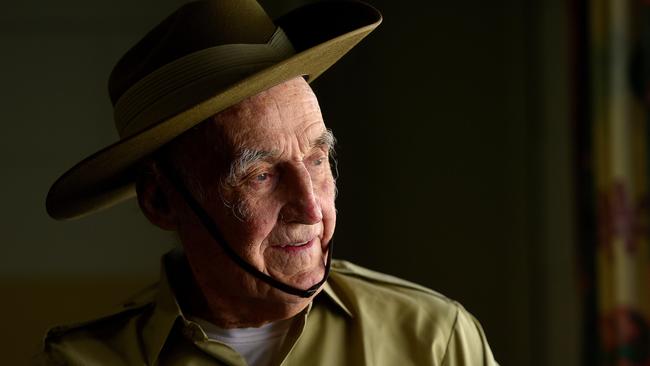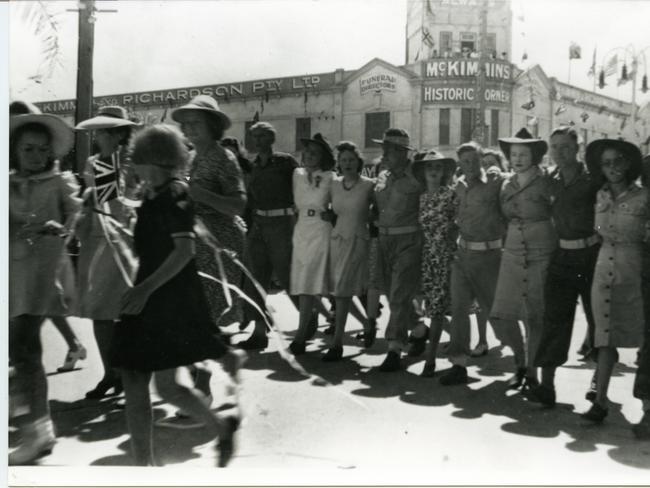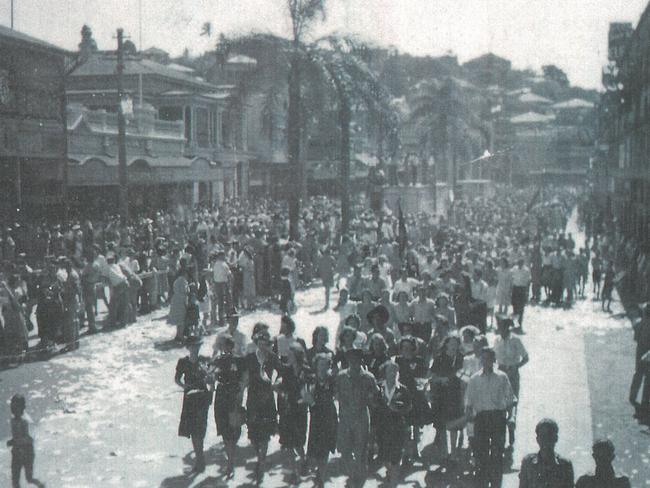Townsville second world war veteran reflects on service during Cowra breakout in Second World War
Volunteering for war before he could be forced into conscription, a Townsville veteran has reflected on his role in the largest prisoner of war breakout in any country during WWII.

Townsville
Don't miss out on the headlines from Townsville. Followed categories will be added to My News.
VOLUNTEERING for war before he could be forced into conscription, a Townsville veteran has reflected on his role in the largest prisoner of war breakout in any country during WWII.
Private (Ret) Victor Williams was an eyewitness to the Cowra breakout on 5 August 1944, less than four weeks after he joined the defence force on 11 July at age 18.
He said when he was sent to the prisoner of war camp it was expected the Japanese would try to escape.
“There was a rumour going around in the prison camp among the Japanese, that the Japanese (soldiers) had landed in Australia,” he said.
“It’s a disgrace for them to be taken as prisoner and they thought that the Japanese were going to take over Australia, so they decided their men were either going to kill them or Australians were going to kill them.

“We were called out on parade and to bring our rifles, but we’d never had any rifle practice, we’d only been in the army four weeks and that was all root marching and drilling.
“They didn’t give us any bloody bullets, so they said take your rifles back … and they said use your bayonet.”
As the Japanese stormed the barbed wire fence and knocked it down, Australian soldiers could hear the shooting and firing from the rookie camp half a mile down the road where soldiers were stationed.
At the time, the Japanese prisoners were armed with steel knives and cutlery used for meals — 1104 Japanese prisoners of war were part of the breakout, with four Australians and 231 Japanese killed.

Victor said he was part of a section tasked with protecting the local hospital following the breakout.
“We were all only 18 year old lads, and we had to stand there; I had to touch the fellow one side and the other side of me all in one big circle around the hospital,” he said.
“I said to the officer what are they armed with and he said baseball bats, sharpened up kitchen knives and I said they’re better armed than what we are, all I have is a bayonet.”
Cowra was the only town put under martial law to protect its farmers and the town itself, with civilians not allowed out on the street. It lasted three weeks.
“I was as frightened as buggery, and it was not only me who was frightened, all my mates were frightened too, we were all only 18,” Victor said.
“That second world war was a bloody cruel war, there was more civilians killed in that war than military personnel.”
Originally published as Townsville second world war veteran reflects on service during Cowra breakout in Second World War
